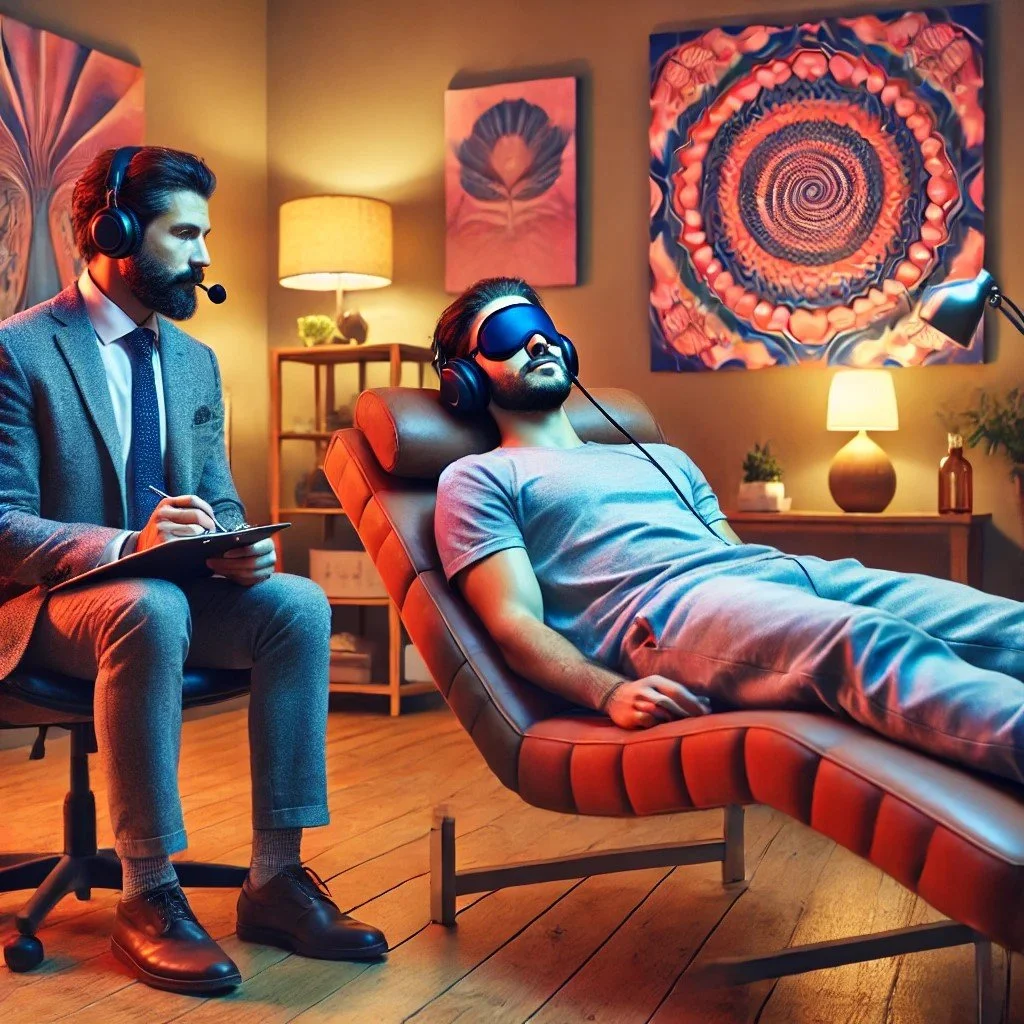The Promise of Psychedelic-Assisted Psychotherapy
Psychedelic-assisted psychotherapy (PAP) is rapidly emerging as one of the most exciting breakthroughs in mental health care. Long shrouded in stigma, psychedelics like psilocybin (magic mushrooms), MDMA, and LSD are now being studied in clinical settings with astonishing results. But what exactly is PAP, and how can it help those struggling with mental health challenges?
What Is Psychedelic-Assisted Psychotherapy?
PAP is a therapeutic approach that combines traditional psychotherapy with the controlled use of psychedelic substances. Unlike conventional treatments that may require years of talk therapy or daily medication, PAP takes a different path—one that opens the mind to profound insights and emotional breakthroughs.
Under the guidance of trained therapists, patients take a carefully measured dose of a psychedelic substance in a safe and supportive environment. These substances work by altering brain activity, promoting neuroplasticity, and temporarily quieting the part of the brain responsible for self-criticism and rigid thinking patterns. This allows individuals to process traumatic memories, confront deep-seated fears, and gain new perspectives on their struggles.
How Can Psychedelic-Assisted Psychotherapy Help?
1. Breaking Free from PTSD
One of the most well-researched applications of PAP is in treating post-traumatic stress disorder (PTSD). A groundbreaking study published in Nature Medicine found that MDMA-assisted therapy led to dramatic improvements in PTSD patients, with many experiencing lasting relief even a year after treatment.
2. Overcoming Depression and Anxiety
For individuals suffering from treatment-resistant depression and anxiety, PAP offers hope where other therapies have failed. Psilocybin, the active compound in magic mushrooms, has been shown to rapidly reduce depressive symptoms by rewiring the brain and fostering emotional openness. Patients often report feeling a newfound sense of connection, purpose, and inner peace after just one or two sessions.
3. Helping with Addiction
Breaking free from addiction is notoriously difficult, but psychedelics may hold the key. Studies suggest that substances like psilocybin and ibogaine can help reset the brain’s reward system, reducing cravings and helping individuals address the emotional wounds that drive addictive behaviors.
4. A New Hope for Eating Disorders
Eating disorders, particularly anorexia nervosa, are among the most challenging mental health conditions to treat. Early research suggests that psychedelics can help individuals break free from the obsessive, self-critical thought patterns that fuel disordered eating. A study from Imperial College London found that psilocybin-assisted therapy significantly improved self-perception and body image in participants struggling with eating disorders.
The Future of Psychedelic Therapy
While the promise of PAP is undeniable, it is not without risks. These substances are incredibly powerful and must be administered in a controlled, therapeutic setting to ensure safety. Additionally, ethical considerations, accessibility, and regulatory approvals remain key challenges as researchers work to integrate PAP into mainstream mental health care.
However, as more clinical trials continue to yield positive results, the momentum behind psychedelic therapy is growing. We may be on the brink of a mental health revolution—one where healing comes not from suppression, but from expansion, self-discovery, and profound transformation.
References:
Mitchell, J. M., Bogenschutz, M., et al. (2021). MDMA-assisted therapy for severe PTSD: A randomized, double-blind, placebo-controlled phase 3 study. Nature Medicine.
Spriggs, M. J., Kettner, H., Carhart-Harris, R. L. (2021). Positive effects of psilocybin on eating disorder symptoms: A pilot study. Imperial College London.
Watts, R., Kettner, H., et al. (2021). Psilocybin treatment for anorexia nervosa: Study protocol. Frontiers in Psychiatry.
I’m here for you. Let’s talk.



